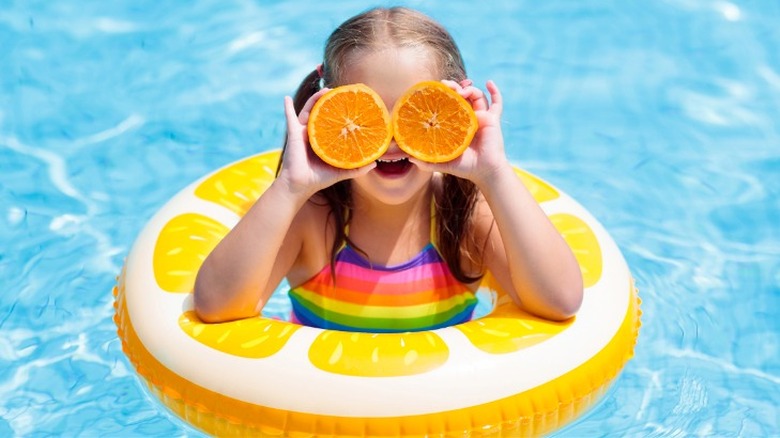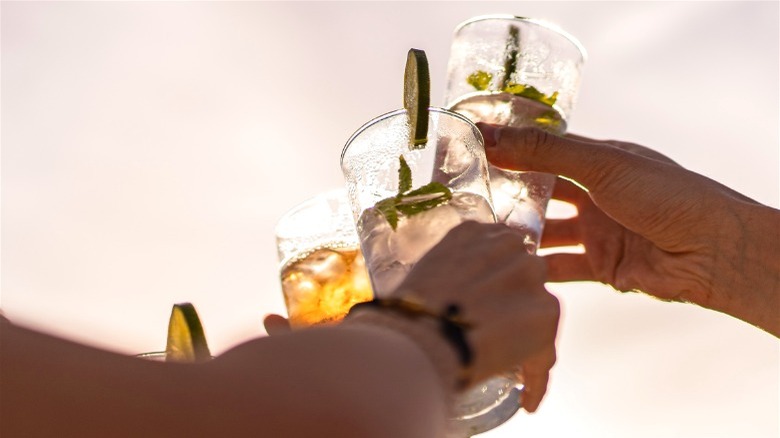Are You Really Supposed To Avoid Swimming After Eating?
With summer in full swing, you may spend a day at the lake or pool basking in the sun and taking the occasional dip to cool off. Yet when you were a kid, a full day at the pool meant living in the water from sun up to sun down, only getting out for a PB&J sandwich after your parents insisted. Then, like a dark cloud, the dreaded "wait 30 minutes" rule began. Now as a wise adult, you may be wondering if there's any truth to waiting a specific amount of time after enjoying a quick bite and before dipping into the pool again.
With swimming being the fourth-most popular recreational hobby in the United States (per the CDC), it's estimated that roughly 30% of Americans swim each year, while 36% of children swim as often as six times or more every year (via LIVESTRONG). It's no surprise that rules around water safety have been around for years.
According to GoodRx Health, the time restrictions between eating and swimming came from three separate publications: a book around swimming safety in the early 1900s, a 1967 edition of a Boy Scouts handbook, and a 1967 volume of Outdoors USA Yearbook of Agriculture. While these publications had good intentions, science disagrees with their recommendations.
You can eat after swimming
While certain states have unique rules around swimming, such as Maryland's ban on eating in the ocean, Dr. Jim Keany, of Providence Mission Hospital in California, claims the general notion of waiting a certain amount of time to swim after eating is simply a myth, stating the idea is a misconception of what our bodies can and cannot do (via HuffPost). "There is no medical evidence that supports waiting at least 30 minutes after eating before swimming," Keany says.
Dr. Keany explains that the idea came from a false assumption that the human body doesn't have enough blood to aid in digestion and support the arms and legs for safe swimming, which simply isn't true. There is enough blood in the body to support healthy digestion and safe swimming simultaneously.
However, after inhaling that burger and fries, you may want to be cautious of overexertion in the water. Triathlon coach John Rhodes suggests treating swimming like any other sport (per HuffPost). You wouldn't eat a BLT with chips and then immediately play an hour of basketball in the hot sun. According to Duke Health, the biggest risk of eating before swimming is minor stomach cramps. Now that you're safe to enjoy all your favorite summer recipes poolside, is there anything you should avoid before jumping into the water?
Avoid alcohol before swimming
When people want a taste of summer, that usually means grilled food, fresh salads, and cold beer. But that beloved beverage is one treat that should be avoided if you're planning to show off your diving board skills. According to the CDC, alcohol use is related to 70% of swimming deaths in America. A 2003 study in the Journal of Injury Prevention also suggests that if a person consumes alcohol, they are far more likely to drown or have a water-related accident. Dr. Jim Keany told HuffPost that when a person consumes too much alcohol, the human body also overheats, adding to the risks associated with safe swimming practices.
As long as you're following recommended safety guidelines for swimming, you can feel confident while enjoying all your favorite foods near the lake or pool — you may, however, want to leave the summer cocktails at home.


